Passenger v Driver Brain
How we talk about Mental Health is more important now than ever.
We all know what it’s like when you get together with your friends, the banter is always a fun part of it, but often this banter comes with slang words and terms like psycho, mental, loonie, weirdo. Now, most of the time, we mean no offence, it’s just that we have grown up in a generation where these terms were acceptable to use. However, in a world where Mental Health is drastically increasing and we absolutely need to reduce the negative stigma associated with Mental Health, then language and terms, such as the ones described really need to be considered and challenged.
Now I get that some of you might be thinking, yeah but it’s only words and nobody takes it offensively, so it can’t be that bad, Isn’t our actions more important?
Well, the honest answer, is no, the old adage that ‘actions speak louder than words’ does not apply here and I would like to explain why language, even without a negative intention, can have a negative impact on everyone.
1. Blocker to seeking help
The first point is a simple one, you don’t always know who is in the room or who is having mental health concerns, so never assume. Language that is thrown about in a ‘joking’ way can make that individual feel like they are less of a person, as we typically use these terms in a derogatory way.
This can create a vicious cycle for that person, of thinking that they’re suffering from “something” that they really shouldn’t be – or worse, that this “something” somehow makes them as lesser person, or different to others. The result of this is that it can stop the person seeking out support, as they could feel demoralised, demotivated and certainly don’t want to draw attention to themselves. As you can imagine this is a lonely place to be and also confusing.
See often we are not aware of the effects that words actually have on us, we thinking we do, but I am about to tell you why this isn’t the case.
2. Passenger -v- Driver Brain
Over the years there has been lots of research that discuss how our brains operate from 2 different systems. These are summarised below
- Passenger Brain- Responsible for reasoning, decision making, complex calculations and fine motor skills/movement. This brain is lazy and needs to be prodded and reminded when to spring into action, as it takes a lot of mental effort to use this brain. So typically it likes to sit back and just enjoy the ride, until it’s told to get off and do something.
- Driver Brain – That’s way more active. This is the automatic system that quickly and effortlessly responds to things, with little or no voluntary response. It responds quickly and likes to take charge. This system is the brain that is responsible for keeping your heart beating, doing automatic tasks like riding a bike and every day tasks.
Now the passenger brain is pretty undeveloped in comparison to the Driver brain, so let’s say it’s a younger version. After all it’s only recently that we have started to develop this system with the evolution of life and all the inventions and creations that came with it.
The Driver brain, however, is like our ancient brain. It’s the system human beings have been using since day dot, even before the creation of what we call verbal language. As you can imagine, this system is way more active and always on the go. As we have developed as a species so has this brain. In order to deal with the increasing amount of information and data thrown at it, this brain has learned some shortcuts and will make highly complex associations every minute. Rather than going from A-B-C-D, it will over time go A-D, just for quickness and necessary to be able to help us lead normal lives. Therefore it is our diver brain that largely guides our thinking. Because it works so fast it is always looking for the simplest causal connection (eg A =D).
This is where the importance of language comes in. The driver brain easily and effortlessly takes charge in producing a response to a word, Psychologists call it ‘associative activation’, that word will bring with it an idea, a memory, then that will trigger another idea, memory (association) and the driver brain will keep making these connections between all our memories. What these memories also brings emotions and then responses to these emotions. This whole process happens very quickly, within seconds and with NO conscious control. So what you get is a pattern of word = memories = emotions = response, all before you even know what is happening. That’s right, I will say it again. You will respond to words without even realising it.
So with this in mind, we might want to be a little more considered in the language that we use. You might be joking around and calling your mate ‘mental’ and think it is funny. But for that individual who has a mental illness this could trigger a really bad emotion and response.
We are making great strides in our efforts to change the stigma around Mental Health and make all conversations about the subject easier to have. You have a part to play in continuing with this momentum. Simply by stopping and considering the words and phrases you use, could make the difference to another persons life.





